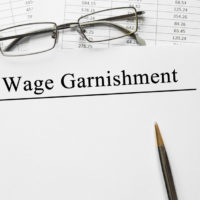Bankruptcy Can Help You Recover Garnished Wages

Bankruptcy can be a confusing, byzantine process, and without prior knowledge of the system, it’s easy to get overwhelmed and to feel as though the game is rigged against you. With legal help on your side from attorneys who understand this maze of laws and rules, however, bankruptcy can provide you with numerous money-saving benefits that can help you make a financial recovery both in the immediate and long-term future. One aspect of bankruptcy that may help you bounce back financially is the possibility of recovering garnished wages. Learn more below about returned garnished wages, and contact a Southern California bankruptcy attorney with additional questions.
A key concept to understand about bankruptcy is the idea of the equality of all creditors. Aside from priority creditors (including the IRS or an alimony or child support recipient), all creditors are to be given an equal opportunity to recover at least a portion of what the bankruptcy petitioner owes them. Should the debtor’s available funds become depleted shortly before they file for bankruptcy, the bankruptcy trustee will often take steps to recover those funds so that they can be part of the bankruptcy estate to be proportionately divided among all creditors. For example, debtors are advised not to pay back substantial loans to family members within months of filing for bankruptcy, and bankruptcy trustees will often require that the family member pay those funds back to the bankruptcy petitioner’s estate if that occurs. If this rule didn’t exist, it could result in one creditor receiving 100% of what they’re owed if the debtor pays them back the day before they file for bankruptcy, while a creditor who waits to receive a portion of the bankruptcy estate might receive just a fraction of what they’re owed from the same debtor.
It is for this reason that the bankruptcy court has the right to demand the return of wages garnished by a creditor within 90 days of a bankruptcy filing. If the creditor garnished over $600 in wages, they can be required to return those funds. A debtor will be permitted to keep the wages if they can prove that the wages fall under one of their available bankruptcy exemptions, a determination that an attorney can help them to make. If no exemption applies, the funds will be used to repay creditors. Since priority debts are the first debts to be repaid, and since priority debts aren’t forgiven in a bankruptcy, the wages may still go toward an expense that the debtor would’ve had to pay eventually, even if they aren’t returned to the debtor directly.
For help determining whether a Chapter 7 or Chapter 13 bankruptcy filing is the right choice for you, contact the Ventura bankruptcy and consumer law attorneys at Rounds & Sutter for a consultation, at 805-650-7100.
